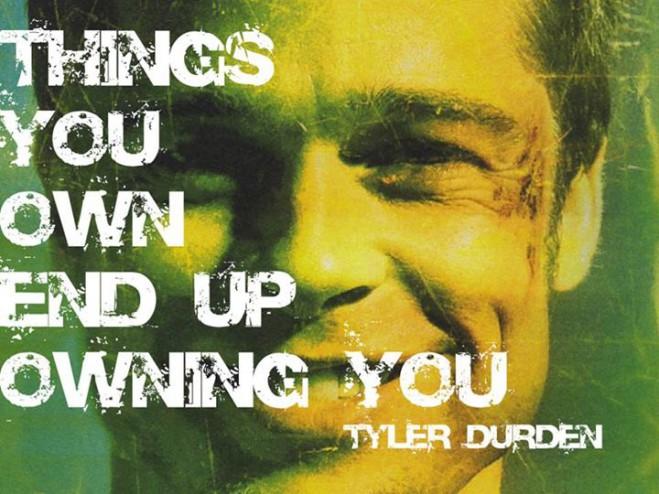
Avoiding Attachment: The Only Way To Be Free
The basic reality of a nomad is to keep changing location. The first question that comes to mind when I think of being free:
“Why don’t most of us spend at least some period of time in our lives as a nomad?”
Upon further thought, the answer I find is that we can’t, and the reason we can’t is attachment. If we dig deep and take a thorough look into our lives, we will find that we all are attached to something in our lives that keeps us immobile. In this article, we will discuss major types of common attachments and the proper way to deal with them to become a nomad.
- Sustaining Ourselves Financially
We usually sustain ourselves by either receiving a salary from an employer or opening our own business. In each case, this classic money-making model requires staying in the same place and showing up each day of the week. For most of us, this standard has not changed, but there is some good news. Because of the changes Internet has made, I know people, living on decent salary, who work from home. That means they can really work from anwhere – it is all about picking a flexible job that allows you to do things in advance or openly discuss matters with your boss. If you open a business, try to pick a business idea that will not require you to actually be physically present in a specific location. Again, the Internet is a perfect solution since most start-ups and online businesses do not require your physical presence. So as we’ve discussed, due dilligence and preparation will actually allow you to sustain yourself while on-the-move thus avoiding a physical business attachment that omits the ability to become a nomad. - An Attachment to Someone Else
This is often an attachment to a family member but can also be an attachment to a pet. There are two common situations. One situation: we are too attached to a person and afraid of losing them because they will not accompany us in our nomadic way of life. This is usually true for a spouse or other intimate relationship we may have. The most obvious solution is to choose a spouse that accepts a nomadic lifestyle and would agree to accompany us on our journey. A nomad isn’t required by definition to travel alone, he just has to travel. If you find that special someone who is willing to accept this new lifestyle with you, you’ve probably found a gem. The second situation: we have someone that is dependent on us. The most common case would be having a child or pet (or in some cases, our parents or family – especially those who are medically disabled). This attachment to a dependent is much trickier than the first. In this case, we may have to give up our nomadic dream for a period of time and face the reality that sometimes we have to stay in one place. This is particularly true when a family member we care about is ill and needs us by their side. In this case, we can only wait for them to get better or kick the bucket (to be frank). Other than that, if you decide you want to be a nomad, it would be a smart decision to postpone having kids (since having kids will prevent you from traveling). Also, if we know that our top desire is to become a nomad, one of the worst things that we can do is to get a pet,because they are also very hard to leave alone for a long period of time (or take with you). In conclusion, the major attachment of having someone be dependent on us is a challenge, but we can prepare ourselves to deal with it sucessfully. - Assets and Valuables
Usually it’s an amazing house that we don’t want to abandon or even a fantastic car or any other valuable asset we can’t take with us which holds us back from leaving. The only solution here is to understand that any asset that creates this type of attachment is actually a liability that we need to get rid of. - Dependency on Comfort and Security
Most of us need a place that we can call home, that we can come back to and feel comfortable in. This is fine as long as we’re happy. If we are unhappy, we must face the possibility that the comfort of home is only doing us damage. It is true that a nomad usually travels with one suitcase or bag that in some way is actually his home. Once you accept this, you will find only the most important things to put in this bag, and break away from the heap of unnecessary things. - Connected with all of the above mentioned: Fear
Most notedly, the fear of change. We are afraid to leave our comfort zone and stable environment. The best way to conquer this fear is to understand that if we’re unhappy, change is the best solution. The world is full of opportunity and the potential for happiness. Fearing a change that can get us to a happier reality is counterproductive and not fair to ourselves.
All in all, the attachments I’ve mentioned above are completely natural. Not being aware of them and preparing in advance makes for a lost battle though. The best way to take control and finally make the decision to become a nomad is to be conscious of what we want to do and prepare ourselves to not fall into the trap of attachment. As a side note, when I became a nomad, I was handed the opportunity. I was unhappy, yet I feared leaving my job and the risk of losing my girlfriend. However, life (forcibly) pushed me to disengage from my attachments when I was fired and my girlfriend left me. In this case, life itself – without any opposition on my part – has enabled me to break free from my attachments – but you can’t necessarily count on that to happen to you. So, being aware and active can improve your chances of having less attachments in life if this is something you’ve decided can make you happy.


0 Comments